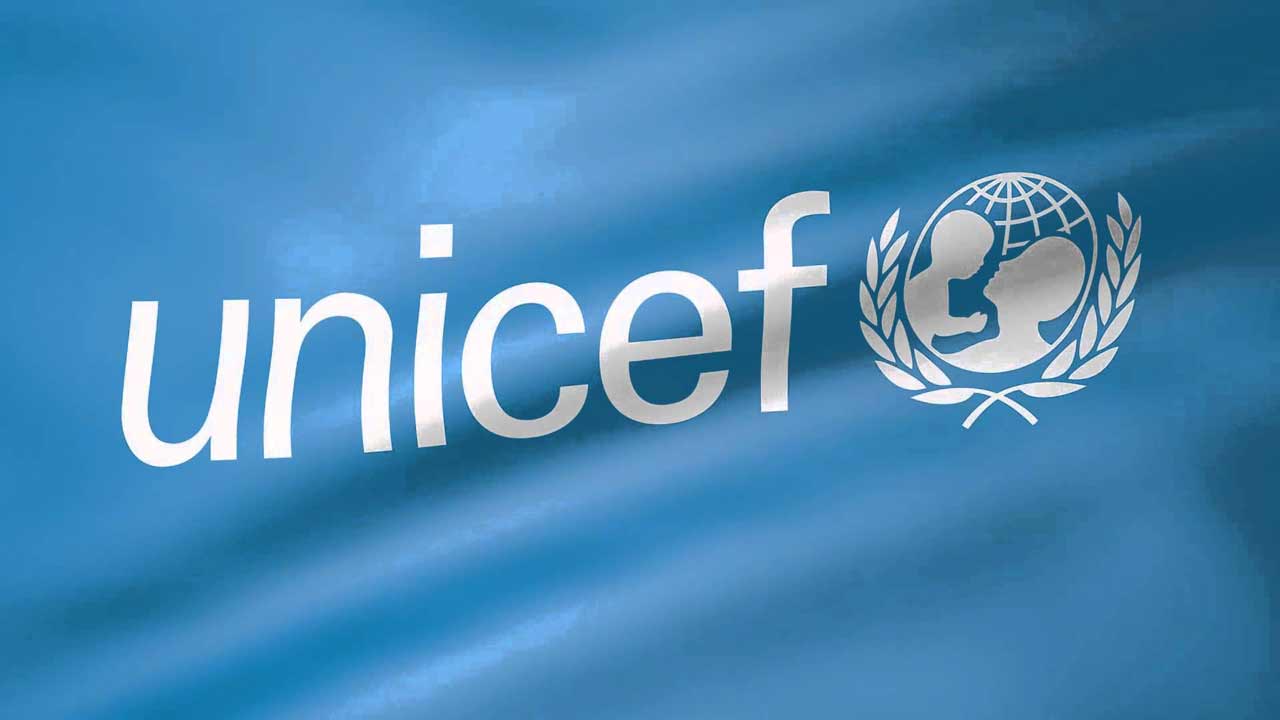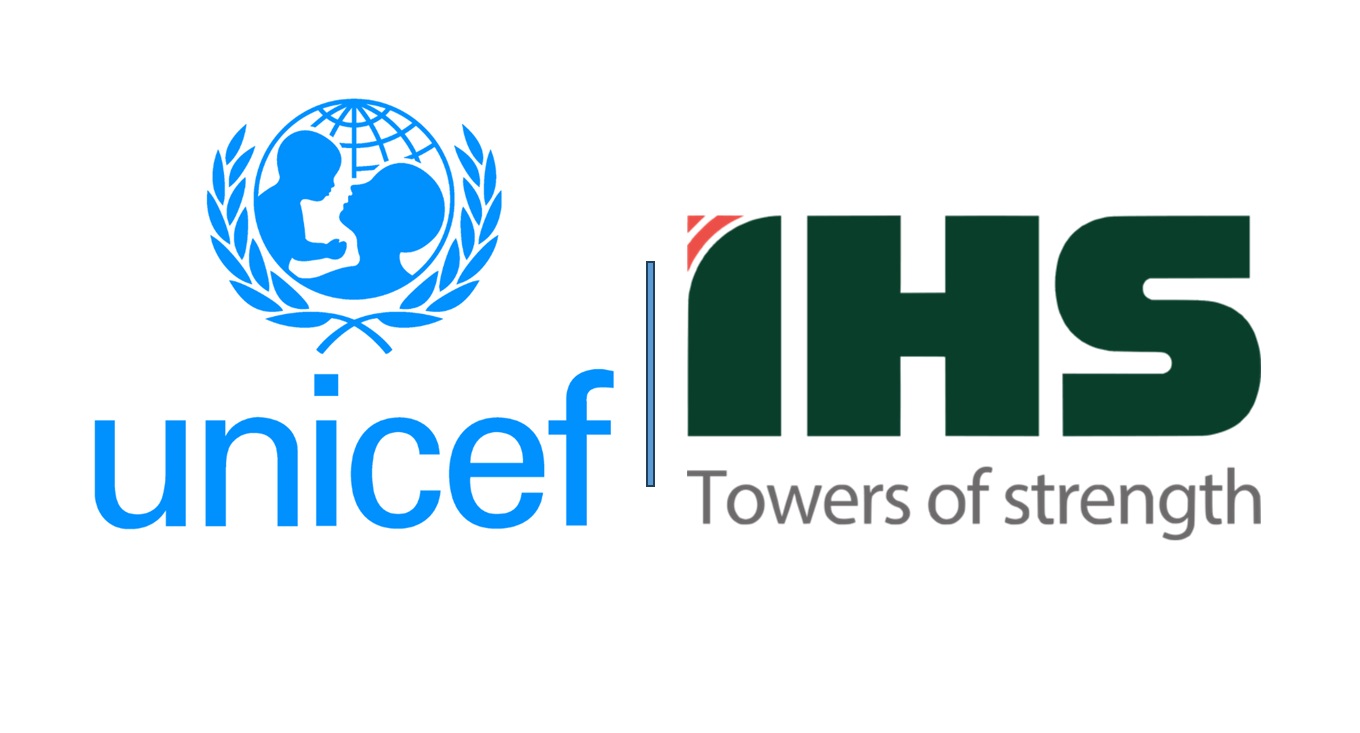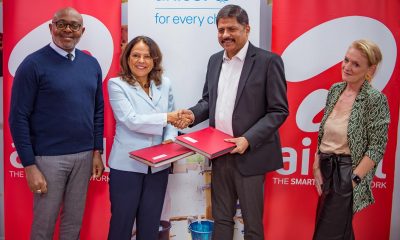General
Africa May Stop Child Marriage 100 Years’ Time—UNICEF
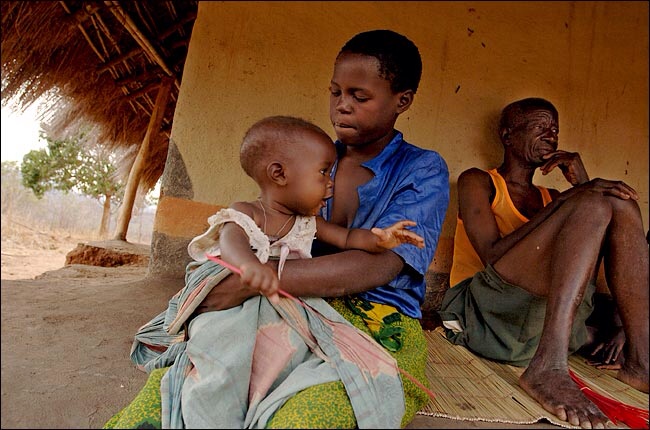
By Modupe Gbadeyanka
A new report by the UNICEF has warned that unless progress is seriously accelerated, it will take over 100 years to end child marriage in West and Central Africa, with far-reaching, life-altering consequences for millions of child brides and crippling impact on the region’s prosperity.
In the report released on Monday titled ‘Achieving a future without child marriage: Focus on West and Central Africa’, it was said that as a result of rapid population growth and high prevalence, even a doubling of the rate of the current decline would not be sufficient to reduce the number of girls marrying each year.
“We need to shake ourselves up,” said Fatoumata Ndiaye, UNICEF’s Deputy Executive Director. “We cannot continue to let so many of our girls miss out on their health, education, and childhood. At current rates, our report shows, it will take over 100 years to eliminate child marriage in the region – how is this acceptable?”
The new projections, released during a high-level meeting on ending child marriage in Dakar this week, aim to bring the spotlight on the region of the world where girls face the highest risk of marrying in childhood.
While the prevalence of child marriage in West and Central Africa has declined over the past two decades, progress has been uneven, and still four in 10 women are married before the age of 18 and, of these, one in three before the age of 15.
West and Central Africa includes six of the 10 countries with the highest prevalence of child marriage in the world: Niger; Central African Republic; Chad; Mali; Burkina Faso and Guinea.
The report also highlights that progress is possible – even in high prevalence countries – when the right mix of strategies is in place, such as empowering girls, mobilizing families and communities to change attitudes and behaviours, providing adequate services to girls at risk and to married girls and putting in place consistent laws and policies to protect and promote the rights of girls.
Five countries in the region – Gambia, Guinea Bissau, Togo, Ghana and Rwanda – stand out with declines in the practice ranging from 40 to 60 per cent over the past 25 years.
Getting girls to school and keeping them there for as long as possible is one of the best strategies to delay child marriage because educated girls are able to develop the skills, knowledge and confidence they need to make decisions about their choices in life. The longer a girl stays in school, the less likely she is to be married before the age of 18 and have children during her teenage years.
“Getting girls to schools should be our top priority,” said Ndiaye. “Not only because it equips girls for life, but it also helps to lift their families, their communities, their countries out of poverty.”
Child marriage, the marriage or union of children under the age of 18, is a harmful practice which violates the rights of children. Child brides are less likely to finish school, and are more likely to be victims of violence and become infected with HIV. When children get married, their prospects for a healthy, successful life decline drastically, often setting off an intergenerational cycle of poverty. Also, child brides often lack the skills needed for employment.
General
EFCC Names 58 Ponzi Schemes Nigerians Should Avoid [Full List]

By Aduragbemi Omiyale
The Economic and Financial Crimes Commission (EFCC) has expressed concerns over the rising rate of Ponzi schemes in Nigeria amid genuine desire by citizens to seeks streams of income to survive the current harsh economic environment.
In a statement on Tuesday, the Head of Media and Publicity of the EFCC, Mr Dele Oyewale, said it has identified about 58 Ponzi scheme operators defrauding Nigerians under the guise of investment opportunities, warning members of the public to be wary of them.
He said these firms have not been registered or authorised by the Securities and Exchange Commission (SEC) or the Central Bank of Nigeria9CBN) to operate in the country’s financial markets, making their operations illegal.
According to him, the commission has taken legal action against many of the entities, leading to the conviction of five, while another five have pleaded guilty and are awaiting further judicial processes, with other cases still pending arraignment.
Mr Oyewale urged victims of fraudulent schemes to come forward with complaints and assured them that efforts were ongoing to recover funds where possible.
“We urge the public to verify any investment opportunity with the CBN and SEC before engaging. The EFCC remains committed to safeguarding the public from predatory operators and ensuring a corruption-free economic environment,” he stated.
“In line with its commitment to sanitising the financial space of the nation and providing the investing public with adequate and reliable information, the EFCC hereby alerts Nigerians to the operations of 58 companies posturing as investing entities but defrauding innocent citizens of their hard-earned money,” he stated.
He said some of the flagged companies include Wales Kingdom Capital, Bethseida Group of Companies, AQM Capital Limited, Titan Multibusiness Investment Limited, Brickwall Global Investment Limited, Farmforte Limited & Agro Partnership Tech and Green Eagles Agricbusiness Solution Limited among others.
The firms are Richfield Multiconcepts Limited, Forte Asset Management Limited, (Biss Networks Nigeria Limited, S Mobile Netzone Limited, Pristine Mobile Network), Letsfarm Integrated Services, Bara Finance & Investment Limited, Vicampro Farms Limited, Brooks Network Limited, Gas Station Supply Services Limited, Brass & Books Limited, (Annexation Biz Concept & Maitanbuwal Global Venturescrowdyvest Limited,) and Crowdyvest Limited,
Others are Jadek Agro Connect Limited, Adeeva Capital Limited, Oxford International Group and Oxford Gold Integrated, Skapomah Global Limited, MBA Trading & Capital Investment Limited, TRJ Company Limited, Farm4Me Agriculture Limited, Quintessential Investment Company, Adeprinz Global Enterprises, Rockstar Establishment Limited, SU.Global Investment, Citi Trust Funding PLC, Farm Buddy, Eatrich 369 Farms & Food, Globertrot Farmsponsors Nigeria Limited, Farm Sponsors Limited, Cititrust Credit Limited, Farmfunded Agroservices Limited, Adamakin Investment & Works Limited.
The rest include Cititrust Holding PLC, Green Eagles Agribusiness Solutions Limited, Chinmark Homes & Shelters Limited, Emerald Farms & Consultant Limited, Ovaioza Farm Produce Storage Limited, Farm 360 & Agriculture Company, Requid Technologies Limited, West Agro Agriculture & Food Processing Limited, NISL Ventures Limited & Estate of Laolu Martins, XY Connect Investment Limited, River Branch Unique Investment Limited, Hallmark Capital Limited, CJC Markets Limited, Crowd One Investment, Farmkart Foods Limited, KD Likemind Stakeholders Limited, Holibiz Finance Limited, Ifeanyi Okpe Oil & Gas Services, Servapps Nigeria Limited, Barrick Gold Mining Company and 360 Agric Partners Limited.”
General
Our Law Against Noise Pollution, Not Evangelism—Soludo

By Modupe Gbadeyanka
The Governor of Anambra State, Mr Charles Soludo, has explained that the recent law, which banned noise pollution in the state, was not put in place to frustrate evangelism.
In a statement issued on Tuesday by the Commissioner for Information, Mr Law Mefor, the Governor emphasised that preachers have nothing to fear if they do not cause noise pollution, especially at markets and other public places in the state.
It was speculated that Mr Soludo came up with the controversial law after his encounter with an itinerant preacher at the popular Onitsha Market recently.
The statement drew the attention of members of the public to the Public Health Law 2006, which prohibits noise pollution and preaching in inappropriate places like markets using loudspeakers.
The Governor advised preachers to conduct their activities in churches or designated areas where people can gather and listen to the word without disrupting others’ activities.
He stressed that noise pollution is punishable under Sections 8(1,4b) and 9(1,2) of the Public Health Laws of Anambra State, 2006.
It was noted that as a matter of precedence, a magistrate court in Nnewi made this law actionable against a church in 2019.
The public was advised to disregard any claims suggesting Governor Soludo has banned evangelism or public preaching in Anambra State, urging them to adhere to the Public Health Law and respect other people’s rights to a conducive environment.
General
VIDEO: Tragedy as Tanker Explodes at Otedola Bridge Lagos
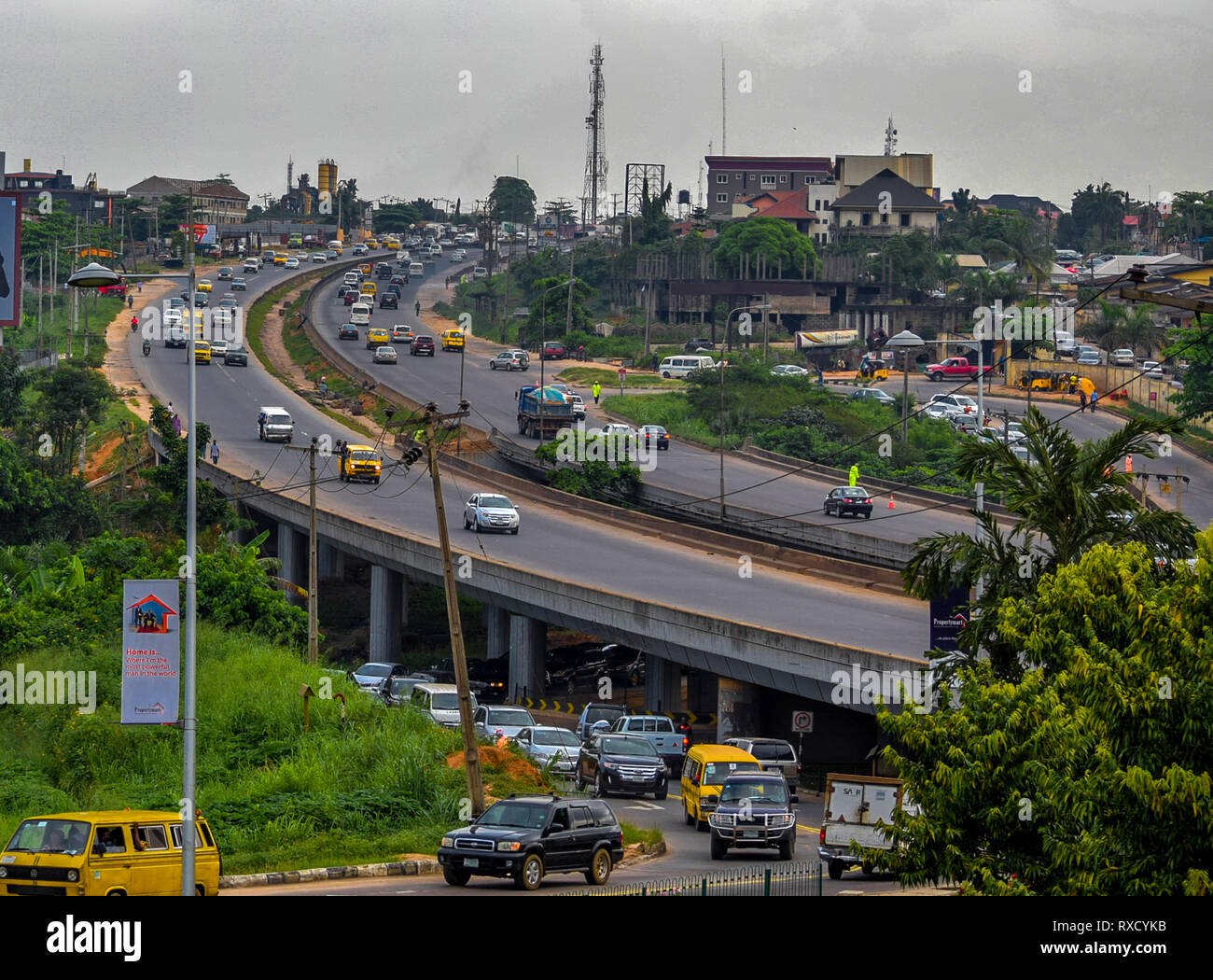
By Dipo Olowookere
A heavy-duty vehicle believed to be conveying gas has exploded around the popular Otedola Bridge, Lagos.
The unfortunate incident occurred on Tuesday night, at about 8:05 pm.
Reports reaching Business Post indicate that the incident caused heavy traffic in the area, with security officials and fire-fighters at the scene to curtail the fire.
It was gathered that several properties, including vehicles, were destroyed by the gas explosion.
This newspaper could not confirm at the time of filing this report if there was any human casualty.
-

 Feature/OPED5 years ago
Feature/OPED5 years agoDavos was Different this year
-
Travel/Tourism9 years ago
Lagos Seals Western Lodge Hotel In Ikorodu
-

 Showbiz2 years ago
Showbiz2 years agoEstranged Lover Releases Videos of Empress Njamah Bathing
-

 Banking7 years ago
Banking7 years agoSort Codes of GTBank Branches in Nigeria
-

 Economy2 years ago
Economy2 years agoSubsidy Removal: CNG at N130 Per Litre Cheaper Than Petrol—IPMAN
-

 Banking2 years ago
Banking2 years agoFirst Bank Announces Planned Downtime
-

 Sports2 years ago
Sports2 years agoHighest Paid Nigerian Footballer – How Much Do Nigerian Footballers Earn
-

 Technology4 years ago
Technology4 years agoHow To Link Your MTN, Airtel, Glo, 9mobile Lines to NIN


